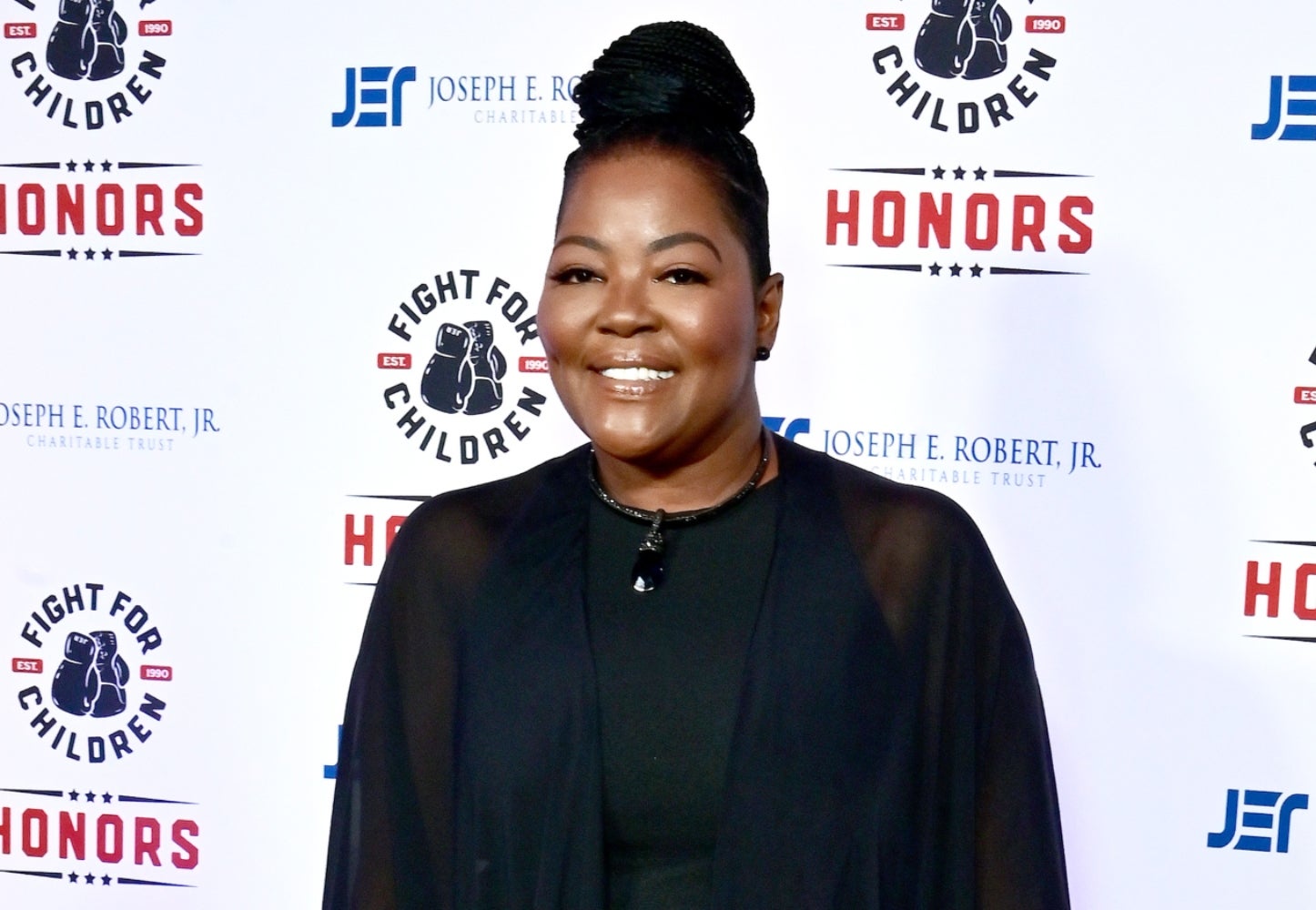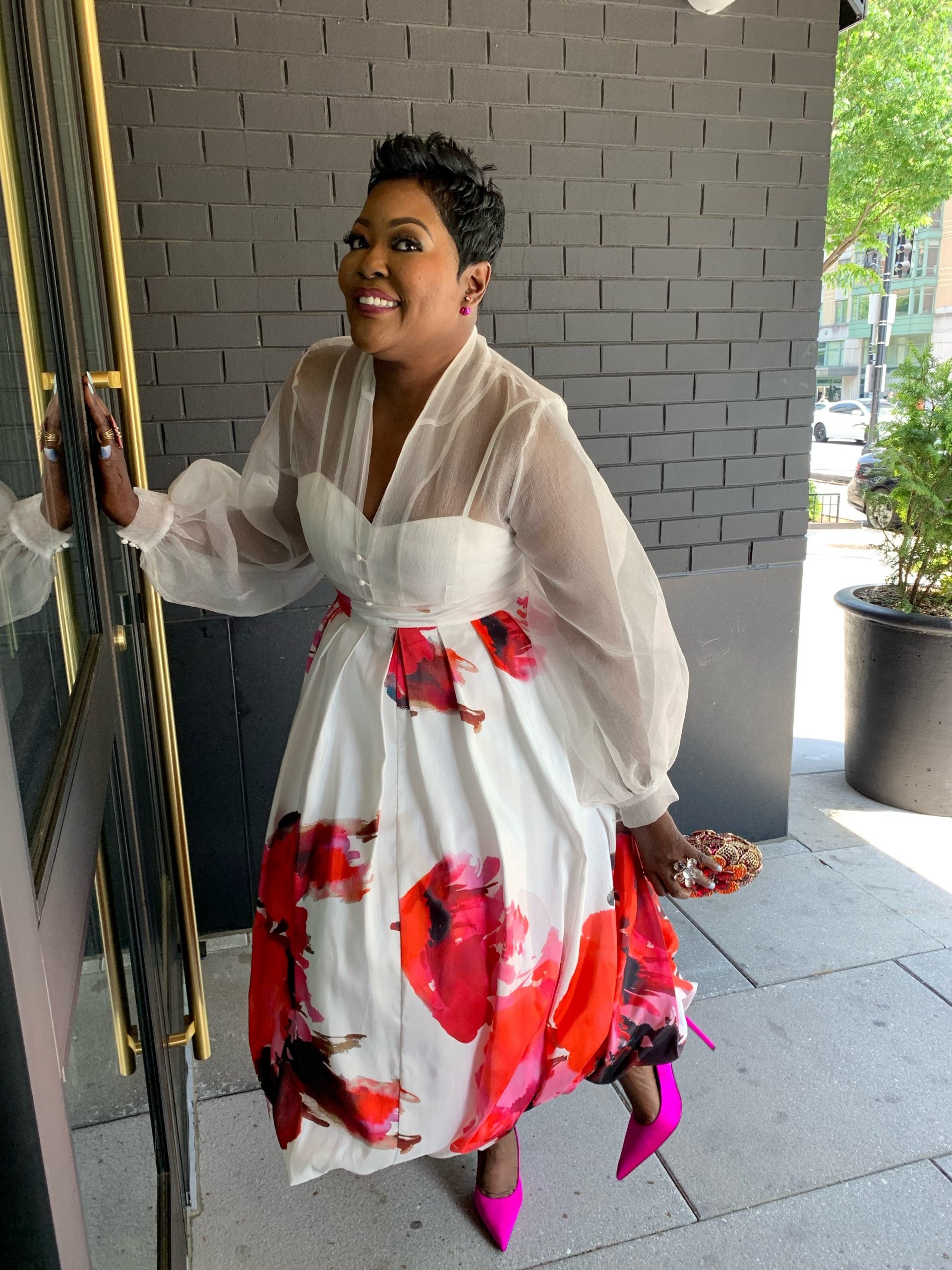
Usually, when you see Wanda Durant, she’s all about the game of basketball. She can often be seen sitting court side at NBA games, rooting emphatically for her son, Kevin Durant. She roots for him off the court too, uplifting him in all he does as an athlete who deals with a lot of unwanted commentary and criticism.
“I’m Kevin’s biggest fan,” she tells ESSENCE. “He’s always going to be Kevin and that’s it. I understand the arena in which he’s in and being a professional athlete, you are going to have some who love him, but some don’t. I’m still his mom so it doesn’t matter. It doesn’t matter what other people say. I enjoy him.”
Ms. Wanda is also hoping to uplift others when it comes to a topic very important to her: Graves’ disease and thyroid eye disease. The mother, grandmother, entrepreneur and philanthropist is someone thriving with Graves. She was diagnosed 17 years ago after suffering for years with alarming ailments.
“About three years prior to being diagnosed with Graves’ disease, I was experiencing the symptoms — rapid heart rate, a loss of weight, hair thinning, skin irritations, my eye slightly bulged with a little pain in my right eye. I knew something was wrong,” she says. She went to her doctor to seek some answers, yet test results came back normal even though she felt anything but “normal.” Wanda’s thyroid levels simply weren’t extreme enough on the scale for it to be an obvious Graves’ situation.
Things eventually came to a head after she went to the emergency room during an “explosive” episode where her heart rate was alarmingly rapid.
“I was alone and I had never experienced it to that severity before,” she recalls. I was taken to the ER and there I had to be treated to have my heart rate regulated. They had to stop my heart twice with medication. And then I left the emergency room and I still wasn’t diagnosed with anything. But later that evening, the ER physician suggested that I talk to my doctor and go see an endocrinologist. When I did, that’s when I was diagnosed.”
Graves’ disease wasn’t new to Wanda. She had family members who suffered from the condition, though she admits it wasn’t something they openly talked about. What she wasn’t aware of though is something often associated with Graves, and that’s thyroid eye disease, or TED. The autoimmune disorder is when the immune system attacks muscle and fat tissue behind the eyes causing inflammation and scar tissue. Symptoms include eye bulging, eyes that don’t work together and double vision.
“With my right eye, I have dealt with the eye pain, and previously I just thought, ‘Okay, that’s just a part of having Graves’ disease,'” she says. “But now I have an appointment with a TED eye specialist. I’ll get a better understanding of actually what’s going on with my eye.”
“Thirty percent of patients with Graves’ disease are unaware that there’s a possibility of having TED,” she adds. “Fifty percent of them have TED and are unaware that it exists. We have to bring awareness that TED is a separate and a different issue from Graves’ disease, even though they kind of run in tandem. There are separate treatment methods for them both.”

Though she will be seeing a specialist for the first time about her right eye, Wanda has successfully been able to manage her other symptoms by prioritizing her condition. As someone who was once balancing two boys, her work and more as a single mother, it wasn’t initially easy to do.
“As I was dealing with symptoms, I continued to be the mother to my children and have my career at the time. And I was continuing to move on in my life and I just dealt with the symptoms,” she says. “Now, living with Graves’ disease I’m more in control of what is going on and I take the medication regularly and that keeps my thyroid level normal. And so that helps me to continue to thrive, to be a supportive mother and grandmother and to focus on my personal and professional life. That’s because I’ve taken control of my medical issues.”
She encourages other women who often put themselves last on their list of priorities to start putting themselves first.
“I know as women, especially with young children, wives with full lives, we tend to put ourselves on the back burner. But what I’ve learned is that I’ve got to focus on my health,” she says. “It’s very important to me and it’s imperative for my longevity that I know what’s going on with me and my health and do whatever I need to do to manage my health properly and appropriately.”







She adds, “You have to make yourself an important part of your life and you have to be intentional about that. Be intentional about your calendar, making time for you in your calendar and for your emotional, spiritual, financial, and physical wellbeing.”
And if you have dealt with any symptoms that sound like what she faced before she was diagnosed with Graves’ disease, Ms. Wanda says do your research – visiting sites like the American Thyroid Association and FOCUSonTED.com – and take control of your health, too.
“Be aware of your body,” she says. “Know what your normal levels are, what your baseline is. I wanted to be a part of this [Graves’] Awareness Month because we need to know, as women and Black women in particular, the parameters of our health issues and how we can better manage it so that we can have full lives.”






